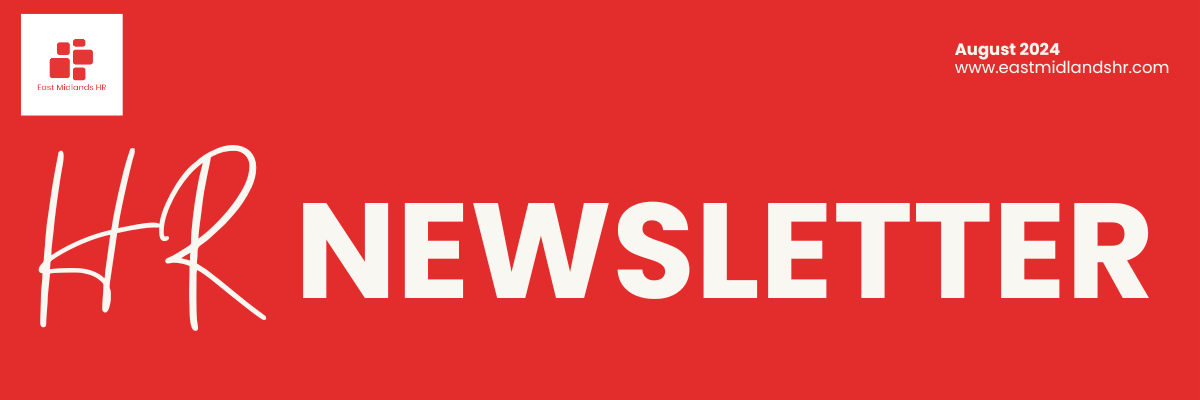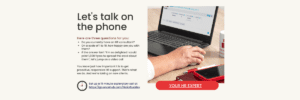
Flexible working gives employees the power to choose where, how and when they carry out their work.
It empowers them to take charge of their work-life balance and shape their career around personal commitments.
It goes beyond simply reducing hours, coffee shop work days or exclusively catering to working parents. Embracing flexible working requires a complete work overhaul.
So, how would you rate your business's flexibility? Are you locked into a strict 9-5? Or are you championing total autonomy? Let’s find out…
Rating ⭐: Rigid Routine
You lean towards a more traditional, fixed schedule with little wiggle room beyond the 9-5 framework.
Rating ⭐⭐: Limited Movement
There’s some flexibility in hours. You support part-time arrangements, though remote working is more of an occasional treat than the norm. While you’re open to flexi-time to accommodate the school run, for example, it’s within defined boundaries.
Rating ⭐⭐⭐: Moderate Adaptability
Your business has established policies in place for flexible hours, hybrid and remote work, although not all teams have fully embraced them yet.
Rating ⭐⭐⭐⭐: Considerable Freedom
You actively promote flexible working, adopting hybrid working as standard due to its proven benefits. You provide ample support and resources, offering dynamic flexible working options.
Rating ⭐⭐⭐⭐⭐: Ultimate Flex
Your employees are living the flexible working dream, with complete autonomy over when, where and how they work. They decide how the work is done and you trust them to deliver, irrespective of where it’s done. Whether that’s the pub, the garden or even overseas, you focus solely on output and don’t track time.
Do you need to review how flexible you are? Our latest guide explores everything you need to know. Get in touch to get your FREE copy today.
A recent poll by a law firm, Winckworth Sherwood, shows that employers and employees aren’t on the same page when it comes to wellbeing priorities. This puts businesses at a risk of ‘wellbeing washing’ - claiming to have good benefits in place but falling short when wellbeing issues arise.
Even though most employers (86%) believe their wellness initiatives reduce sick leave rates, their main goal was to increase productivity. Alarmingly, only half of businesses surveyed offer essentials like ‘good work’, fair pay and reward, and promote flexible working - crucial for good mental health, say both employers and employees.
The study also shows a disconnect between mental health support strategies. While 37% of employers focus on perks like yoga, only 26% of employees want them. They'd rather have good work and autonomy.
Bridging the gap and adopting a holistic approach to wellbeing is crucial for fostering a supportive work culture. Neglecting to do so not only undermines employee satisfaction, but could risk the organisation’s reputation.
https://www.peoplemanagement.co.uk/article/1875808/firm-guilty-wellbeing-washing
New research from Harris Poll reveals a growing trend among employees – ‘Quiet Vacationing’. This phenomenon, particularly popular among Gen Z and early-career workers, sees 28% of employees taking unofficial time off without informing their boss. Among younger workers, this number jumps to 37%.
Practices include taking longer lunch breaks, wiggling the mouse to appear active and auto-scheduling emails for out-of-work times to give the impression of going the extra mile.
While it may seem cheeky, it’s not necessarily a sign of laziness. Instead, these behaviours could be driven by a desire for a better work-life balance and flexibility to prevent burnout - and the underlying issue may be a cultural one. Rather than stigmatising these behaviours as signs of idleness or low productivity, employers should focus on building trust and promoting a healthier ‘work smarter, not harder’ mindset.
New research by nicotine retailer, Haypp, uncovers a worrying new trend: HR professionals are the most likely among working smokers to light up due to stress, rather than addiction. A whopping 83% of HR smokers reported increased smoking when stressed, shedding light on the intense pressure they face from high workloads and a lack of control.
Rachael Mackenzie, director at wellbeing consultancy, Workathlete, points out that HR professionals often neglect their own wellbeing while caring for employees. Idris Arshad, Head of People at the Asthma & Lung UK charity, emphasises the need for personal stress management approaches, urging HR professionals to practice what they preach. Both experts advocate a shift from unhealthy coping mechanisms, like smoking, to healthier alternatives.
These findings come amid rising concerns about burnout in the HR sector. A January 2024 study by MHR revealed that 50% of HR professionals are on the brink of quitting due to burnout, with over a quarter feeling overwhelmed by work demands.
https://www.hrmagazine.co.uk/content/news/hr-tops-list-of-stress-smoker-professions
Poor mental health at work isn’t just detrimental to your wellbeing strategies and engagement - it can be terrible for your bottom line.
According to new research from Deloitte, poor mental health at work costs UK employers a staggering £51 billion annually.
These are eye-watering figures that demand serious attention. While it’s encouraging to see a decline, addressing mental health at work must remain a top priority for businesses.
First, let’s take a closer look at the three main culprits behind poor mental health at work and the hidden implications for businesses:
• Presenteeism: Where employees work despite not being fully productive, being constantly present despite being unwell, costing businesses £24 billion annually.
• Burnout: Physical and mental exhaustion is also on the rise, with 63% of respondents exhibiting at least one sign of burnout, up from 51% previously. This includes feelings of exhaustion, mental distance from the job and declining performance.
• Family Mental Health: The impact of children’s mental health on their working parents is substantial, affecting their performance and costing UK employers £8 billion a year. Nearly half of working parents are concerned about their children's mental health, leading many to reduce their working hours or seek additional support from employers.
Did you know that for every £1 spent on mental health support, businesses see a return of nearly £4.70 in improved productivity? Incredible!
So, how can you effectively gauge your employees' stress levels, take their stress temperature, and implement resolutions to create a mentally healthy workplace?
Get in touch for a confidential chat and we’ll discuss some strategies that are working well for our other clients.
Are unsigned contracts of employment enforceable?
A signed employment contract isn't required for it to be binding. Acceptance can be verbal or implied through actions. If an employee works under the contract terms without objection, it indicates their acceptance.
Can I cancel someone’s annual leave because we’re short staffed?
You can, if it’s a legitimate business need. However, make sure it doesn’t prevent them from using their full statutory leave within the year. Notice, equal to at least the planned leave period, must be given. If leave is cancelled incorrectly, or they suffer a financial loss, they could raise a grievance or bring a claim for breach of contract or constructive dismissal.
What notice do I need to give to change an employee's usual rota?
If your contract includes a variation or flexibility clause, review its terms and refer to any related policies that detail the process and specify the required notice period. If none, consult with the employee to reach a mutual agreement on the schedule change, Otherwise, legal risks may arise

East Midlands HR Limited is a company registered in England and Wales with company number 12030304. VAT registration number is: GB 337 82 52 82
E&OE
Need urgent HR advice - phone 01604 406443